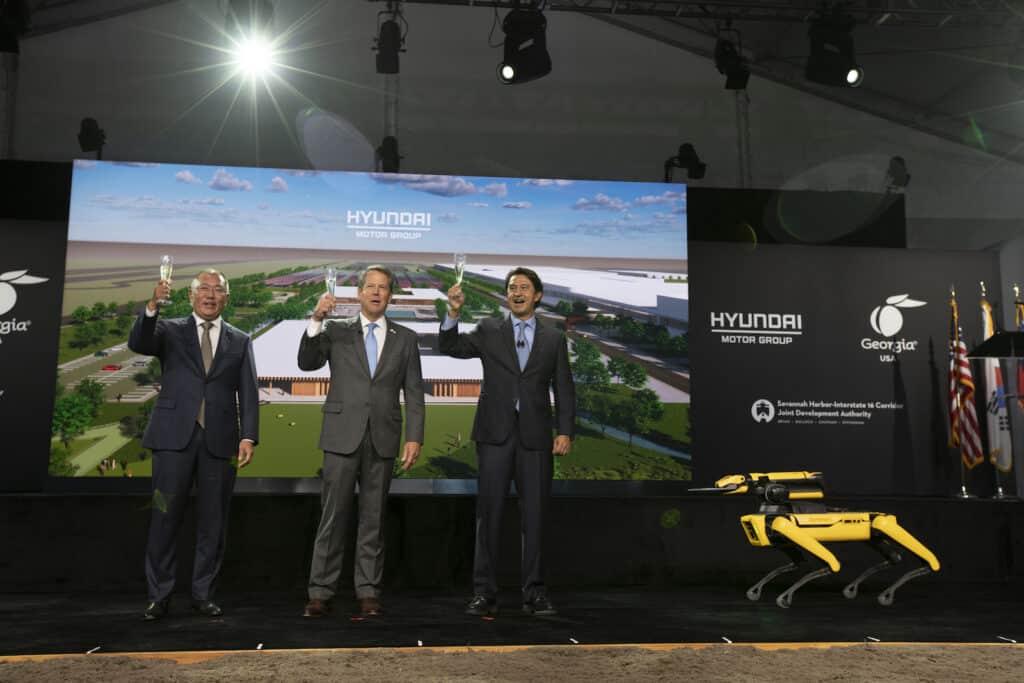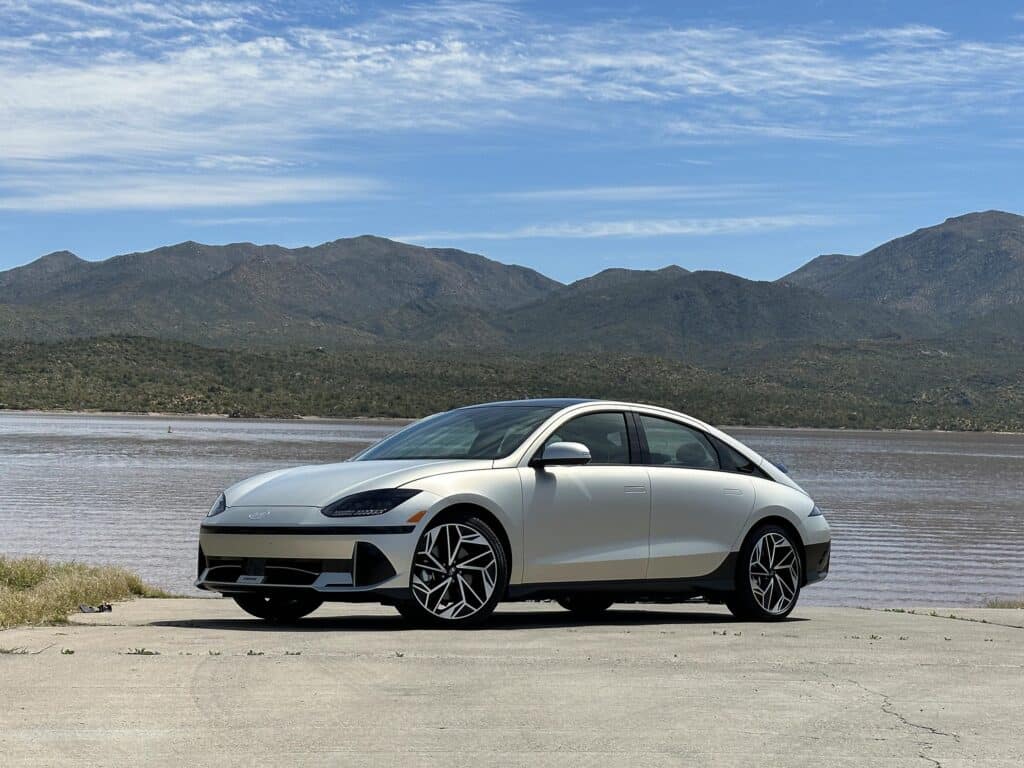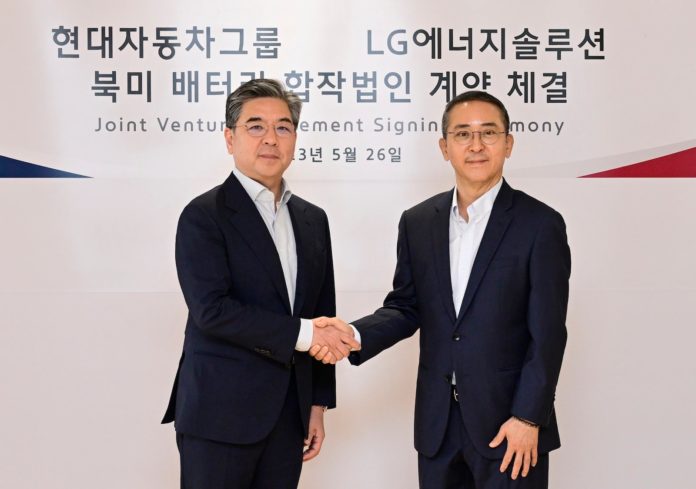Hyundai and LG Energy Solution are partnering on a new $4.3 billion EV battery production facility just outside Savannah, Georgia.
The new joint venture follows the trend of foreign automakers setting up EV and battery production in the U.S. to take advantage of as much as $7,500 in federal tax credits created by last year’s Inflation Reduction Act.
The new battery plant will be adjacent to Hyundai Motor America’s new $5.5 billion plant that will build new electric Hyundai, Genesis and perhaps Kia models. In the case of the battery joint venture, Hyundai and LGES will each hold a 50% stake. LGES is becoming ubiquitous in these types of deals, already acting a JV partner with General Motors, Ford and others.
“Hyundai Motor Group is focusing on its electrification efforts to secure a leadership position in the global auto industry. We will create a strong foundation to lead the global EV transition through establishing a new EV battery cell plant with LG Energy Solution, a leading global battery producer and long-time partner,” said Jaehoon Chang, president and CEO of Hyundai Motor Co, in a statement.
Just about a year ago, Hyundai officials revealed plans to spend $7.4 billion in electrification efforts in the U.S. This latest announcement pushes the total announced plans to nearly double that figure at $14.8 billion.
How much?

Officials said the plant will be able to produce 30 GWh of capacity once it’s up and running at full speed, which will begin at the end of 2025 “at the earliest.” The would account for about 300,000 electric vehicles annually.
Hyundai Mobis will assemble battery packs using cells from the plant, then supply them to the Group’s U.S. manufacturing facilities for production of Hyundai, Kia and Genesis EV models. The new facility will help create a stable supply of batteries in the region and do so quickly as demand for battery-electric vehicles continues to rise. It’s unclear if the plant could be expanded to grow production beyond the 30 GWh level.
Hyundai and LGES have walked this path often, partnering on batteries for other vehicles, including the Elantra Hybrid, Kona Electric and Ioniq 6, which was just introduced in the U.S. However, LGES isn’t the only battery producer it’s working with in the U.S.
In April, Hyundai announced plans to construct a $5 billion EV battery cell production factory in Bartow County, Georgia, northwest of Atlanta, near the facility where it currently builds Kia vehicles. The new facility will be a joint venture with South Korean battery manufacturer SK On intended to support HMG’s future EV production plans. Battery production there is scheduled to begin in the second half of 2025.
Herd mentality

The passage of the Inflation Reduction Act kick started EV and battery development and production in the U.S. Domestic production of EV batteries could grow by as much as 2,000% by 2030, according to a forecast by the U.S. Department of Energy.
Last year alone, industry data shows that $73 billion in projects were announced for the U.S., many of them following the August passage of the Inflation Reduction Act which ties EV incentives to domestic production of their batteries, along with local sourcing of the critical minerals they require.
“So far, 17 new EV battery facilities have been announced, aided by the latest round of Federal incentives in the Inflation Reduction Act,” Bank of America Securities Research Analyst Andrew Obin wrote in a Feb. 22 report to clients. Additional projects have been announced since Obin issued that report, the new Hyundai/LGES joint facility will bring that past 20.
Under the IRA regulations, EVs will be eligible for up to $7,500 in buyer incentives if they meet a series of strictures. To start with, they will need to be assembled in the U.S., Canada or Mexico. In turn, Congress set caps on both buyer income and EV pricing. That tops out at $80,000 for vehicles defined as SUVs. And the price cap is a lower $55,000 for EVs falling into the sedan, coupe, hatchback and wagon categories.
A number of foreign-owned manufacturers, including Volkswagen, Volvo, Polestar, VinFast and Mercedes-Benz, have committed to shifting some EV manufacturing to North America.

